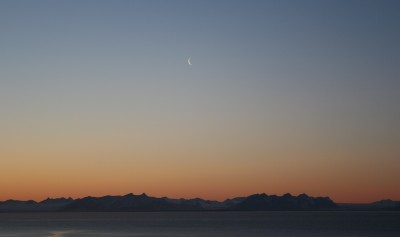New research shows that the US, often called Norway’s most important ally, won’t support Norway’s policies for its claims to the Arctic archipelago of Svalbard. The US is far more interested in protecting its own interests in the area, with an eye to oil and defense issues.

Torbjørn Pedersen, a senior researcher at the University of Tromsø, shared some of his most recent findings in a column in newspaper Aftenposten on Tuesday, and they’re likely to fuel even more debate over US-Norwegian relations. Those relations have been tested in recent weeks already, after news broke that the Americans have conducted surveillance on Norwegian soil for the past 10 years that may be illegal.
Now Pedersen’s research has documented how and why the US has failed to support its Norwegian ally on issues the Norwegians see as highly important. Foreign Minister Jonas Gahr Støre has had the northern areas at the top of his priority list for years, while Norway has long claimed that the continental shelf off Svalbard is Norwegian under terms of the Svalbard Treaty of 1920, and that Norway thus has claims to any resources there, such as oil and gas.
The US, however, won’t go along with Norway’s claim to all natural resources around Svalbard, apart from Norway’s longstanding claim to control fishing rights in a 200-nautical-mile zone around the archipelago. Pedersen says the US is more concerned with access to oil and gas resources for its own US companies and with maintaining stability in the area. The US, according to Pedersen, has feared a potential conflict between Norway and Russia — which recently signed a border agreement in the area — if Norway starts to issue licenses for oil and gas off Svalbard.
Pedersen gained access to previously classified documents in US archives, not through WikiLeaks, but from American authorities themselves. In one document from as late as 2006, recently departed US Ambassador Benson Whitney wrote that Svalbard was becoming “an Arctic hot spot,” and Pedersen believes Whitney urged the US to challenge Norway’s claims to Svalbard at the international court in The Hague.
Whitney left Norway last summer, following the defeat of a Republican successor to the Bush Administration that had placed him in Oslo. Whitney’s reports, according to Pedersen’s research, expressed concerns about Norway’s and Støre’s more offensive policies in the Arctic and not least a conflict with Russian authorities after the Russian trawler Elektron sailed out of Norwegian territory with a Norwegian inspector on board.
Pedersen doesn’t think the US has much understanding of or sympathy for Norway’s policies in the Arctic. “The US has consistently rejected all attempts to gather support for the Norwegian views on Svalbard,” he told Aftenposten. Rather, he says, the US seems to have more understanding for a Russian need for “elbow room” in the Arctic, not least the Russian fleet’s need to sail freely through the Norwegian Sea from its based on the Kola Peninsula.
“Nothing shows that our alliance with the US … is given any weight in the Americans’ evaluation,” Pedersen said. “There’s not talk of favours for friends, but rather of American interests.”
Views and News from Norway/Nina Berglund
Join our Forum if you’d like to comment on this story.

